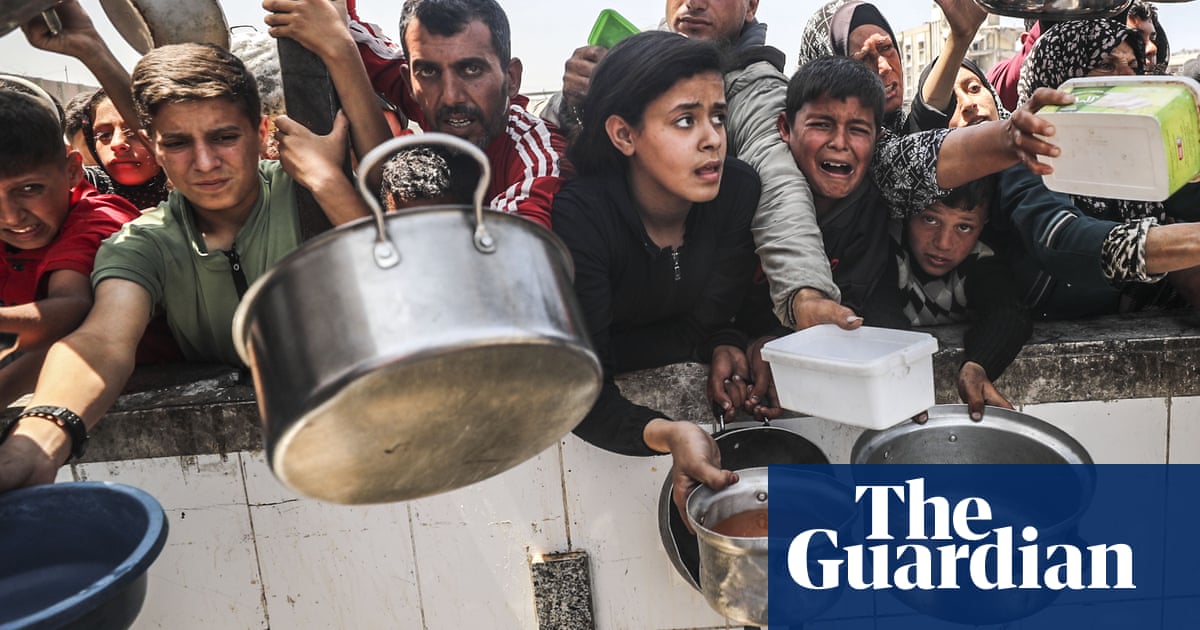Aid groups have voiced alarm at US moves to pressure them into accepting an Israeli proposal to resume limited humanitarian assistance to the war-ravaged territory under strictly controlled conditions.
TheTrump administrationhas attempted to strong-arm international agencies – including the United Nations’ World Food Programme (WFP) – into accepting Israel’s stringent rules for resuming deliveries, according to sources familiar with the discussions and news reports.
A two-month blockade has left the coastal enclave’s 2.3 million inhabitants facing the prospect ofstarvation. The blockade was imposed by the Israel Defense Forces in March after the collapse of a ceasefire to the conflict that broke out after Hamas’s October 2023 attack that killed about 1,200 people in Israel. So far, more than 52,000 Palestinians in Gaza have been killed in Israel’s military response.
Under the auspices of a newly establishedGaza Humanitarian Foundation(GHF), which is based in Geneva, aid would be delivered to four “hubs”, where recipients would have to go to collect it under the watchful gaze of private US security contractors, who would use facial recognition technology to vet who receives it.
Israel insists the stringent measures are necessary to prevent aid being stolen or diverted to Hamas, although some assistance organizations have said they have seen no evidence of such practices.
Aid groups have so far refused to participate in the scheme, fearing it violates “fundamental humanitarian principles” and breaches international law.
Some have privately voiced concerns about potential “complicity in war crimes because of how the aid will be distributed”, according to one person in close contact with assistance organizations, who spoke on condition of anonymity.
“There is a concern that this aid plan risks enabling war crimes related to forced displacement, starvation and internment,” the person said. “This is a scheme to make it seem like this is about aid, but what it’s really about is entrenching military occupation ofGaza.”
Israel’s prime minister, Benjamin Netanyahu,said this weekthat the Gaza population would be moved “for its own protection” under an intensive new Israeli military offensive. Israeli officials have indicated a plan to concentrate the entire population in the south of the strip.
Opposition has been firm even as some organizations, includingWorld Central Kitchenand theWFP, have admitted that an inability to replenish supplies has left them unable to continue feeding the population.
Even if aid is resumed, some groups say, the conditions Israel is stipulating will prevent it reaching many of those in need.
“If you centralize, privatize and militarize aid delivery through this proposed hub model, it means that people will be excluded from getting humanitarian assistance,” said Joseph Belliveau, executive director of MedGlobal, which has been providing medical assistance – including to severely malnourished children – at 16 sites in Gaza.
“People simply won’t be able to come to these distribution sites, either because of fear, logistical constraints, or distance. Even more importantly, many will be reluctant to come to centralized sites that are overseen by armed personnel, and given the way that that Israel has fought this war with incredible numbers of civilian casualties.
“The best thing that the US and Israeli authorities can do is to lift the restrictions and allow us to do to work safely [and] protect medical sites [and] humanitarian workers.”
Sign up toThis Week in Trumpland
A deep dive into the policies, controversies and oddities surrounding the Trump administration
after newsletter promotion
But with living conditions growing increasingly dire, the Trump administration is pressing humanitarian outfits to accept Israel’s terms. US officials have reportedly met the UN and aid groups this week, even threatening to slash the WFP’s budget – which Washington partly funds – if it refuses to accept,according to the Times of Israel.
Donald Trump told reporters in the White House on Monday that “the people of Gaza are starving and we’re going to help them get some food”. His Middle East envoy, Steve Witkoff, met members of the UN security council on Wednesday to discuss the Israeli plan, according tothe Washington Post.
Trump has previously proposed having US taking ownership of Gaza and converting it into a “Riviera”, a scheme which would involve relocating its population to other countries.
A state department spokesperson said Trump was seeking “creative solutions” that would “protect Israel, leave Hamas empty handed, and help Gazans”.
“We welcome moves to quickly get urgent food aid into Gaza in a way that prevents it from falling into the hands of terrorists, such as Hamas,” the spokesperson said. “We support a plan to get in aid now and urge others to do so as well.
“Endless press releases and Hamas appeasement haven’t delivered food, medicine, or shelter to those who need it. This is a new approach with one focus: get help to people NOW.”
